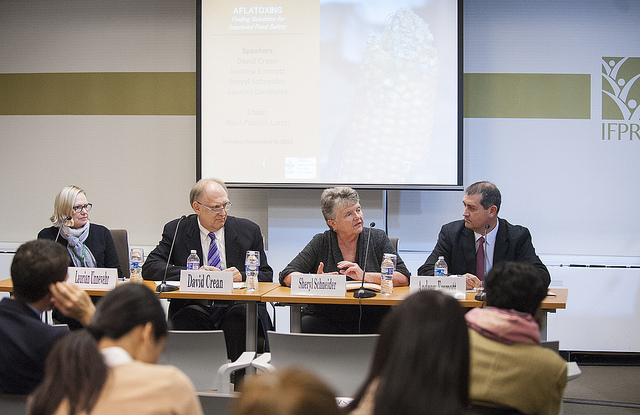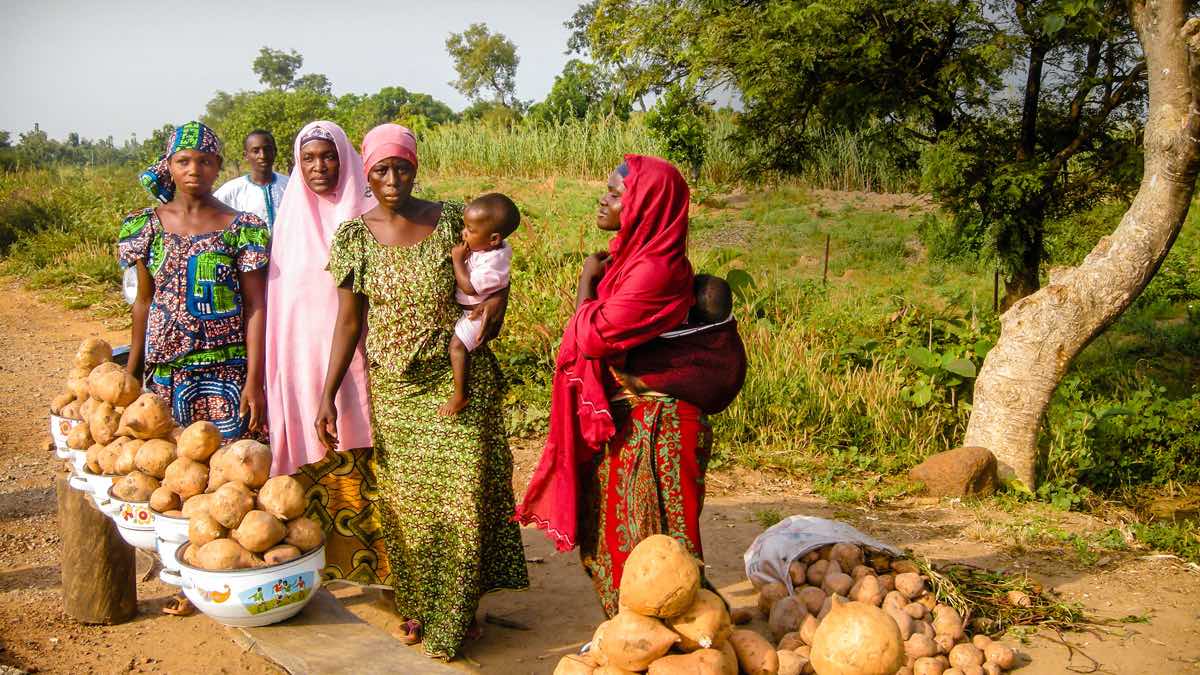Properly functioning markets play a key role in improving the economic well-being of poor populations. But a recent IFPRI event highlighted how markets can do even more, reaching beyond economics to have an important impact on health outcomes.
On November 5, IFPRI’s 2020 Vision Initiative and the CGIAR Research Program on Agriculture for Nutrition and Health (A4NH) launched a new series of policy briefs dedicated to the control and prevention of aflatoxins. Aflatoxins are a naturally occurring carcinogenic byproduct of common fungi found on grains and other crops, particularly maize and groundnuts. They pose a significant public health risk in many tropical developing countries. While the 19 policy briefs cover various aspects of aflatoxin contamination and prevention, from health risks to new detection methods, the launch event focused specifically on how markets and market-led incentives can be used to improve aflatoxin control methods.
“Among smallholders and poor consumers, there’s very little knowledge of the risks posed by aflatoxin contamination or of appropriate control methods,” said Laurian Unnevehr, Senior IFPRI Research Fellow and co-editor of the series. “Even where control methods are understood, markets don’t consistently reward improvement because of a lack of information and incentives.”
The event presented a unique combination of business and development viewpoints, with speakers from Mars Inc., Twin & Twin Trading, The World Food Programme, and IFPRI. These varying perspectives are crucial, said David Crean of Mars, in order to “move away from thinking about just a supply chain that impacts industry to one that impacts society.” Such a holistic approach calls for improved knowledge and interventions at each stage of the supply chain, from supplier to processor, as well as for expanded dialogue among customers, suppliers, the global food industry, and the international development community.
While expanding solutions to address the entire supply chain is one piece of the puzzle, smallholders also need motivation and assistance to invest in new, potentially costly, aflatoxin control methods. Andrew Emmott of Twin & Twin Trading, a UK-based fair trade company, discussed market incentives in the context of Malawi, where poor populations depend heavily on groundnuts, a crop that is nutritionally valuable but also highly susceptible to high moisture levels and subsequent aflatoxin contamination. By combining a program that gives smallholders access to mechanical groundnut shellers, a technology useful in reducing contamination at the farm level, with a bonus scheme that rewards farmers for producing groundnuts with low moisture content, Twin shows how market-based interventions can address critical contamination entry points as well as ensure that farmers are both willing and able to adopt new control technologies.
Emmott also reiterated the need for mutual relationships between smallholder producers in developing countries and the global food industry, and called for increased efforts to keep contaminated crops that are rejected from the international market out of less regulated local markets. “We do need a paradigm shift in our way of thinking, to pull unsafe groundnuts and other grains out of the human food chain and develop profitable alternatives, such as oil and meal,” he said.







